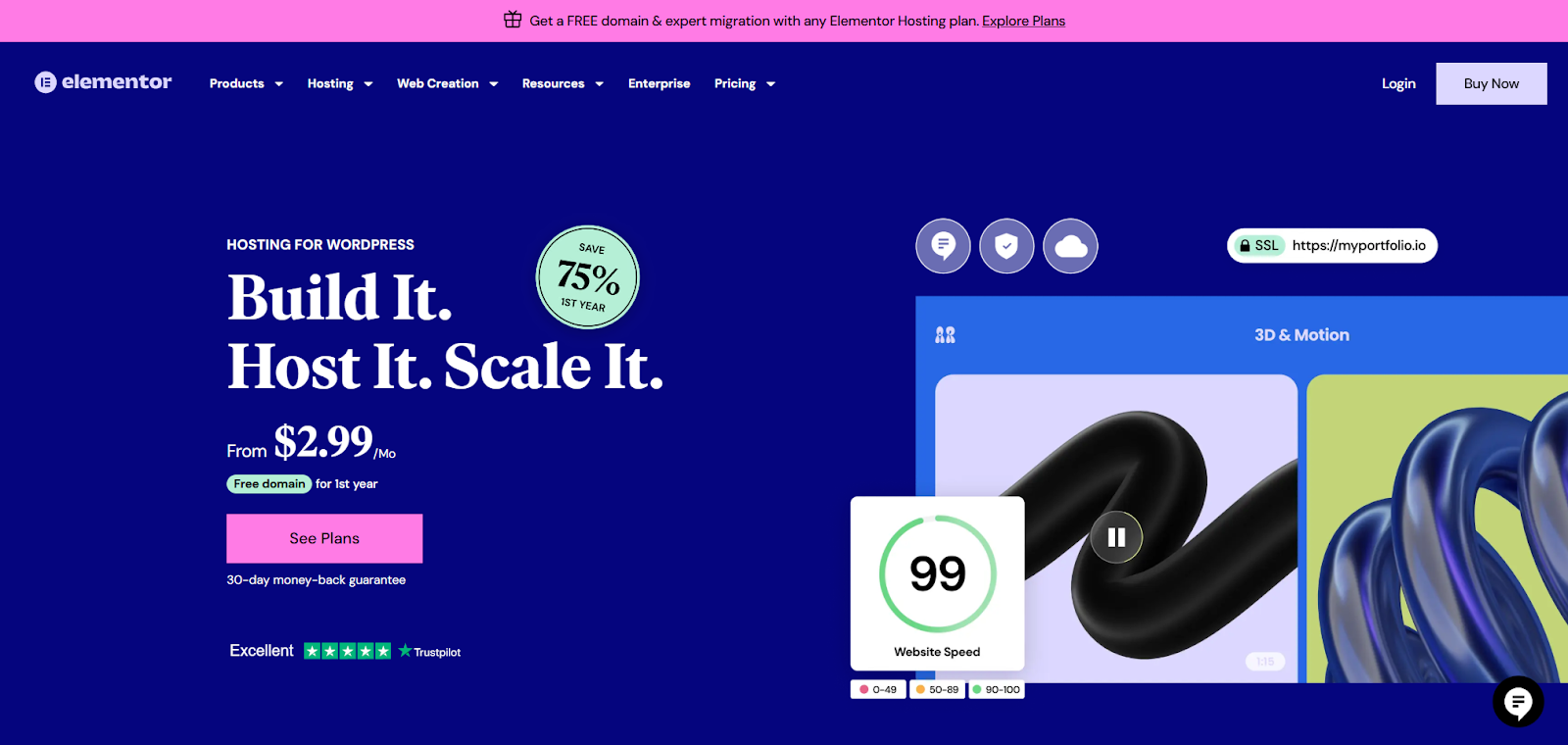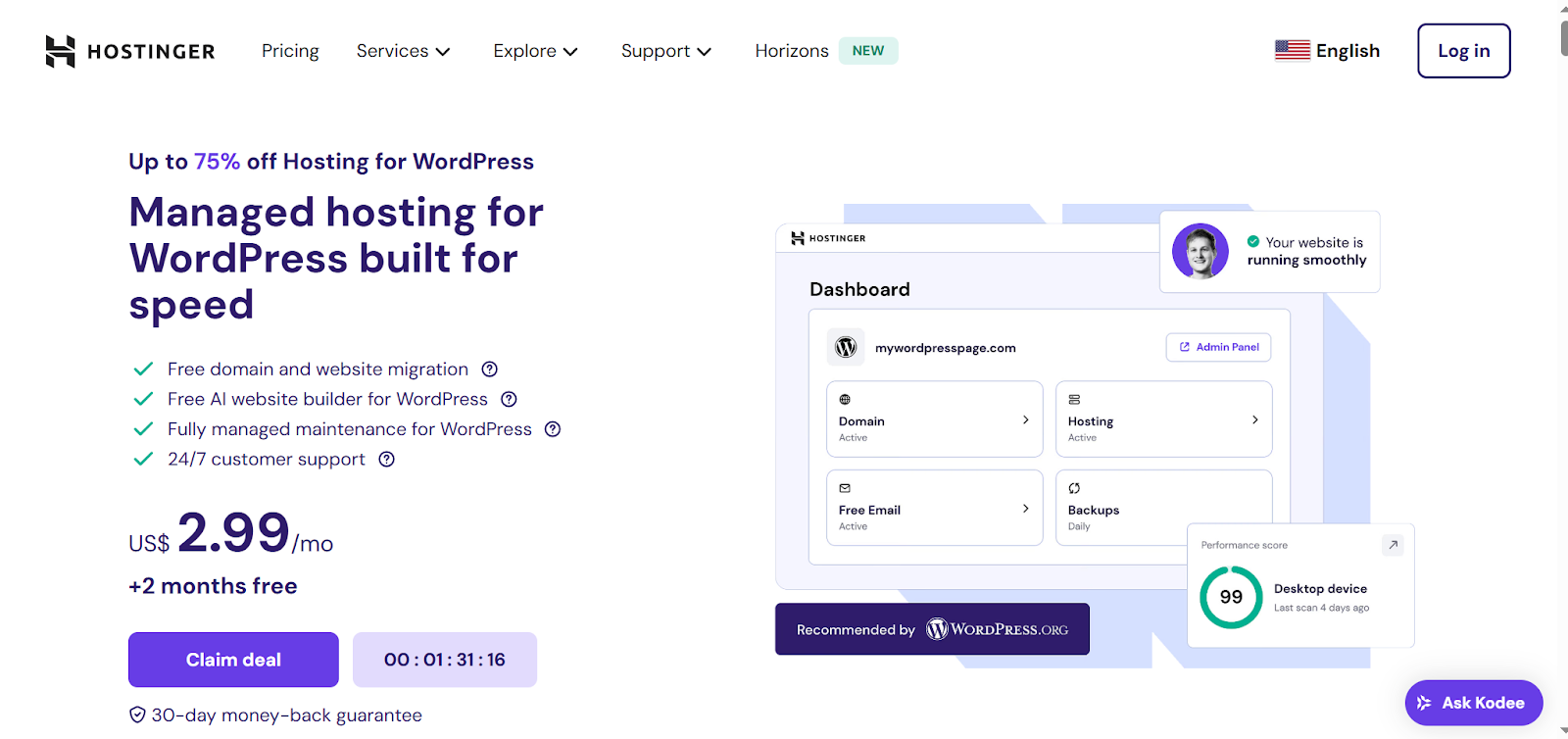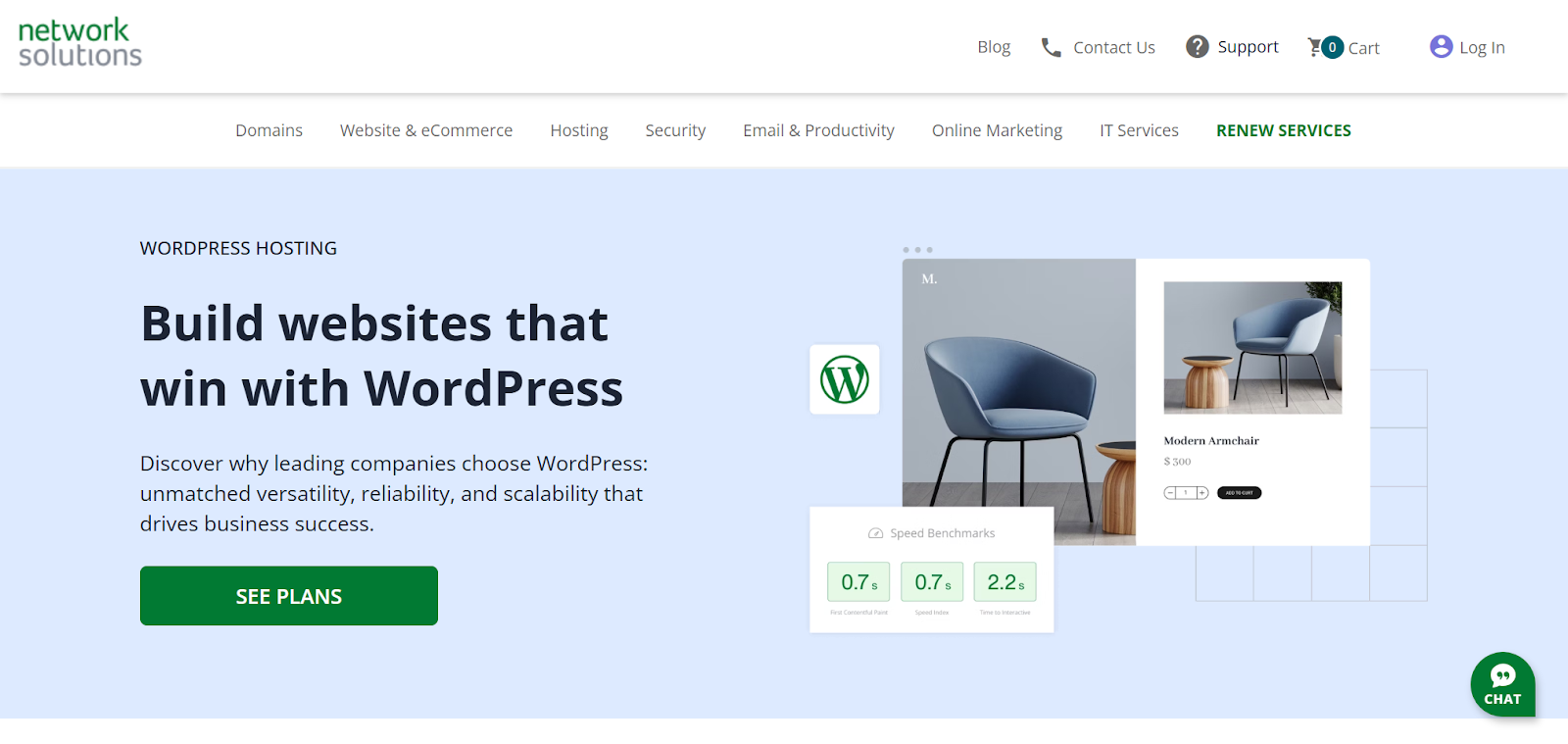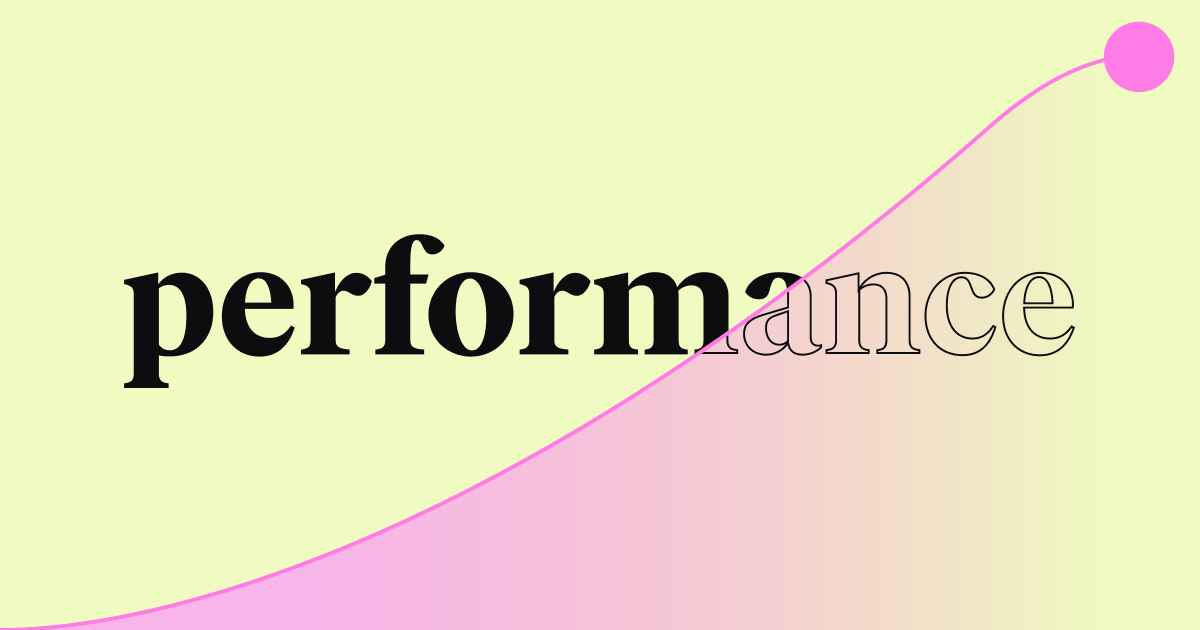Table of Contents
Choosing the right provider is a big deal for your website’s success. It affects speed, security, and how easily you can manage things. Today, we’ll look at three popular options for 2026: Hostinger, Network Solutions, and Elementor Hosting.
We’ll break down what each offers to help you figure out the best fit for your WordPress site, especially if you’re building with Elementor.
Hostinger vs Network Solutions vs Elementor Hosting in 2026
Picking a host isn’t just about price. You need to think about performance, features, support, and how easy it is to use. Let’s see how these three stack up.
Elementor Hosting: All-in-One Solution for WordPress Websites

If you build websites using Elementor, Elementor Hosting presents a really compelling option. Why? Because it’s built specifically for Elementor sites. Think of it like getting a custom-tuned engine for your favorite car.
- Performance: It runs on the Google Cloud Platform, known for its speed and reliability. Plus, it includes the Cloudflare CDN (Content Delivery Network) right out of the box. A CDN stores copies of your site closer to your visitors, making load times faster globally. Features like built-in caching (multiple layers) are preset to work smoothly with WordPress and Elementor, boosting speed without needing extra plugins.
- Integration: This is the big one. Elementor Hosting comes bundled with Elementor Core. This tight integration means the hosting environment is perfectly optimized for the builder. You manage everything – hosting, design, updates – from one familiar place.
- Managed Service: Elementor takes care of the technical heavy lifting. Server management, security patches, and performance tuning are handled for you. This frees you up to focus purely on designing and growing your site.
- Security: Security is clearly a priority. You get free SSL certificates, automatic daily backups (with longer retention on higher plans), DDoS protection, a Web Application Firewall (WAF), and 24/7 monitoring. Features like staging environments (on Business plans and up) let you test changes safely before pushing them live.
- Support: You get 24/7 access to support experts who understand both hosting and Elementor deeply. This specialized knowledge can be invaluable when you run into issues.
Who is it Best For?
Freelancers, agencies, and businesses building sites with Elementor. If you value top performance, robust security, ease of use, and a seamless workflow between your builder and host, Elementor Hosting is designed for you. The included Elementor Core adds significant value.
Elementor Hosting offers a premium, managed experience tightly integrated with the Elementor builder. It prioritizes performance, security, and ease of use, making it an excellent choice for serious Elementor users.
Hostinger: Affordable and Feature-Rich

Hostinger has gained massive popularity, largely thanks to its very competitive pricing. If you’re starting out or working with a tight budget, Hostinger often comes up as a top contender.
- Affordability: Their introductory prices are some of the lowest around, making it accessible for almost anyone to get online.
- Performance: Don’t let the low price fool you; Hostinger generally delivers solid performance. They use LiteSpeed web servers (known for speed) and offer features like built-in caching (LSCWP) and global data centers to keep load times respectable. Many reviews confirm good uptime (often exceeding their 99.9% guarantee) and decent server response times.
- Ease of Use: Instead of the common cPanel, Hostinger uses its own custom control panel called hPanel. Most users find hPanel very intuitive and beginner-friendly, with a clean layout. However, if you’re already used to cPanel, there might be a small learning curve.
- Features: Hostinger plans often include free SSL certificates, free domain registration (for the first year on many plans), and ample resources like bandwidth. Higher-tier plans add features like daily backups, more storage (including faster NVMe storage on some plans), and even AI tools for website building and content generation.
- Support: They offer 24/7 support via live chat and email/tickets, along with an extensive knowledge base. Support agents are generally found to be knowledgeable, though response times can sometimes vary. A notable point is the lack of phone support, which some users might miss.
Who is it Best For?
Beginners, bloggers, small businesses, and anyone looking for reliable hosting without breaking the bank. It strikes a good balance between cost, performance, and features.
Hostinger provides impressive value, combining low entry prices with good performance, a user-friendly custom panel, and decent features. It’s a strong choice for budget-conscious users, though be aware of renewal costs and the absence of phone support.
Network Solutions: The Long-Standing Provider

Network Solutions is one of the oldest names in the domain registration and hosting game, dating back to 1979. They offer a wide array of services beyond just hosting.
- Broad Services: You can get domain names, web hosting (including WordPress plans), email hosting, website builders, online marketing tools, and security products all from one place.
- Hosting Options: They provide both Linux and Windows-based hosting, offering choice depending on your technical preferences. They also list an uptime guarantee (slightly different for Linux vs. Windows).
- Experience: As a long-established company, they have extensive experience in the domain and web services industry.
Who is it Best For?
Perhaps businesses are already heavily invested in the Network Solutions ecosystem for domains and other services, or those needing specific Windows hosting options. However, given the user feedback on usability, support, and value, carefully weigh the alternatives.
Network Solutions is a veteran provider with a wide service range. However, recent user reviews raise concerns about its dated interface, higher costs, value proposition, and customer support quality compared to more modern hosting solutions.
Selecting the Best Hosting Plan for You
Okay, we’ve looked at the providers. But how do you choose the right plan for your specific needs? It’s about matching what a host offers with what your website requires.
Key Factors to Consider When Choosing a Host
- Hosting Tuned for WordPress/WooCommerce: If you’re using WordPress (and especially WooCommerce), look for hosting optimized for it. This often means features like server-level caching, easy WordPress installation, automatic updates, and support staff who know WordPress inside and out. Elementor Hosting, for instance, is built from the ground up for WordPress and Elementor.
- Define Your Website’s Hosting Needs: What kind of site are you building? A simple blog has different needs than a high-traffic e-commerce store or a portfolio site with large images. Consider:
- Traffic Volume: How many visitors do you expect now? In the future?
- Storage Space: How much disk space will your files, images, and database need? (Elementor Hosting plans clearly state storage, Hostinger varies, Network Solutions plans also list storage).
- Functionality: Do you need e-commerce features, membership areas, or specific software?
- Planning Hosting for Future Site Growth: Don’t just pick a plan for today. Think about where your site might be in a year or two. Does the host offer easy scalability? Can you upgrade your plan smoothly (adding more RAM, CPU, storage) as your traffic grows? Cloud-based hosting (like Elementor Hosting on Google Cloud) often offers better scalability.
- Managing Your Web Hosting Budget Wisely: Hosting costs vary wildly.
- Shared Hosting: Most affordable, good for starting out (Hostinger excels here). Resources are shared with other sites.
- VPS Hosting: A step up, offers dedicated resources for better performance and control.
- Managed Hosting: The host handles technical management (updates, security, performance tuning). Often pricier but saves time and hassle (Elementor Hosting fits here).
- Consider introductory vs. renewal rates. Hostinger has low intro rates but higher renewals. Factor the long-term cost.
- Why Hosting Reliability & Uptime Matter: Downtime means lost visitors and potential revenue. Look for hosts with a strong uptime guarantee (99.9% or higher is standard). Elementor Hosting and Hostinger both offer this. Proactive server monitoring helps catch issues before they cause outages.
- Faster Speeds with NVMe Server Storage: Storage type impacts speed. NVMe SSDs are significantly faster than older SATA SSDs or traditional hard drives. Faster storage means quicker loading times for your site pages and database queries. Check if your potential host offers NVMe storage (available on some Hostinger plans, common in premium cloud hosting).
- The Value of 24/7 Expert Hosting Support: When something goes wrong, you need help fast. Look for:
- Availability: True 24/7 support is crucial.
- Channels: Live chat, email/tickets, phone (if important to you – Hostinger lacks phone support).
- Expertise: Does the support team understand WordPress and related technologies? (Elementor Hosting support specializes here). Check reviews for real-world support experiences.
- Need for an Easy-to-Use Control Panel: Managing your hosting (setting up email, managing files, databases, backups) should be straightforward. Elementor Hosting offers an integrated dashboard. Hostinger provides the user-friendly hPanel. Network Solutions’ interface is often cited as less intuitive.
Choosing the right host involves assessing your site’s current and future needs, budget, and required performance level. Pay close attention to WordPress optimization, scalability, uptime guarantees, storage tech, support quality, and ease of use.
Key Factors for Smooth Hosting Migration
Moving your website to a new host can feel daunting, but planning makes it smoother.
- Understanding the Data Transfer Steps: Generally involves backing up your website files and database from the old host and uploading/importing them to the new one. Many hosts offer tools or services to help.
- Handling Your Domain Name During Moves: You’ll need to update your domain’s DNS settings to point to the new host’s servers. This process (propagation) can take a few hours, sometimes up to 48.
- Choosing Where to Host Your Emails: Decide if you’ll keep email with your old provider, move it to the new host, or use a third-party service like Google Workspace or Microsoft 365.
- Tips to Prevent Downtime When Migrating:
- Schedule the migration during low-traffic hours.
- Test the site thoroughly on the new host before changing DNS. Many hosts provide a temporary URL or way to preview.
- Keep the old hosting account active for a few days after the switch, just in case.
- Using Simple One-Click Migration Tools: Some hosts offer automated migration plugins or services (check if Elementor Hosting or Hostinger provide this for your specific situation) that simplify the process considerably.
Plan your migration carefully, back everything up, test thoroughly on the new host before switching DNS, and consider using migration tools if available to minimize downtime and hassle.
Boosting Site Performance on New Hosting
Once migrated, optimize your site for speed on its new platform.
- Actionable Performance Tuning Tactics: Optimize images (compress them!), enable Gzip compression, minimize CSS/JavaScript files, and leverage browser caching.
- Using Caching & CDN for Faster Loading:
- Caching: Stores frequently accessed data temporarily so it loads faster. Hosts like Elementor Hosting and Hostinger have built-in server-level caching. WordPress caching plugins can also help.
- CDN (Content Delivery Network): Distributes your site’s static files (images, CSS, JS) across servers worldwide. Visitors load these files from the nearest server, speeding things up. Elementor Hosting includes Cloudflare CDN; it’s often available with Hostinger too.
- Gains from Cloud Infrastructure Hosting: Platforms built on cloud infrastructure (like Elementor Hosting on Google Cloud) often offer better scalability, reliability, and performance compared to traditional shared hosting.
- Essential Regular Maintenance Routines: Keep WordPress core, themes, and plugins updated. Regularly clean your database and check for performance bottlenecks.
Leverage your new host’s features like caching and CDN. Optimize images and code, keep software updated, and consider the benefits of cloud infrastructure for sustained performance.
Essential Web Hosting Security Measures
Website security is non-negotiable. Your host plays a big role, but site owners share responsibility.
- Key Security Features:
- SSL/HTTPS: Encrypts data between your site and visitors. Essential for trust and SEO. Look for free SSL certificates (provided by Elementor Hosting and Hostinger).
- Firewalls: Network firewalls block malicious traffic before it reaches your server. Web Application Firewalls (WAFs) filter application-level attacks (Elementor Hosting includes a WAF).
- Regular Security Checks: Hosts often perform server-level scans. Use security plugins for site-level scanning too.
- 24/7 Security Monitoring: Good hosts monitor their networks constantly for threats.
- Proactive Security Practices:
- Backup Strategies & Disaster Recovery: Regular, automated backups are critical. Ensure you can easily restore them (Elementor Hosting offers daily backups; Hostinger offers daily on higher plans). Store backups offsite if possible.
- Software Updates & Patch Management: Keep WordPress, themes, and plugins updated! Hosts may offer automatic updates or patch management.
- Secure Access: Use strong passwords, limit login attempts, and consider Multi-Factor Authentication (MFA). Secure file transfer (SFTP/SSH) is better than standard FTP.
- DDoS & BotNet Defense: Protection against massive traffic floods designed to take your site offline (often included with CDNs or premium security suites like Elementor Hosting’s).
- Dev/Stage/Prod Environments: Use staging sites (like those offered on Elementor Hosting’s higher plans) to test changes safely without affecting your live site.
Security is a partnership. Choose a host with robust features like SSL, firewalls, monitoring, and backups. Combine this with your own practices: strong passwords, regular updates, and secure access methods.
What’s Next for the Web Hosting Industry
The hosting world keeps evolving. Here are a few trends to watch:
- AI & Automation in Hosting Management: AI is being used to automate server resource allocation, optimize performance based on demand, detect hardware issues proactively, and enhance security threat detection (as seen in Hostinger’s AI tools and general industry trends).
- Eco-Friendly Sustainable Data Centers: There’s a growing demand for “green hosting.” Providers are increasingly using renewable energy sources, optimizing hardware for energy efficiency, and reducing their carbon footprint.
- Enhanced Security: Expect more focus on proactive security, including Zero-Trust models (verifying everything, trusting nothing implicitly) and advanced WAFs and threat intelligence.
- Cloud Adoption: Cloud hosting (public, private, hybrid) continues to grow due to its scalability, flexibility, and reliability. Managed cloud solutions are becoming more popular.
The future of hosting involves smarter automation via AI, a greater focus on sustainability, increasingly sophisticated security measures, and continued growth in cloud-based solutions.
Conclusion
Choosing between Hostinger, Network Solutions, and Elementor Hosting in 2026 depends heavily on your priorities.
- Hostinger shines with its unbeatable affordability and solid performance, making it ideal for beginners and budget-conscious users.
- Network Solutions, while a long-standing company, faces challenges regarding usability, support, and value based on recent feedback.
- Elementor Hosting stands out as the premium, optimized choice for anyone building with Elementor, offering seamless integration, top-tier performance on Google Cloud, robust security, and expert support, all bundled with Elementor Core.
Think carefully about your website’s needs, your budget, your technical comfort level, and your plans for growth. Consider factors like performance, security, ease of use, and support quality. For Elementor users prioritizing a smooth, powerful, and integrated experience, Elementor Hosting presents a purpose-built solution designed to make your website fly.
Looking for fresh content?
By entering your email, you agree to receive Elementor emails, including marketing emails,
and agree to our Terms & Conditions and Privacy Policy.





